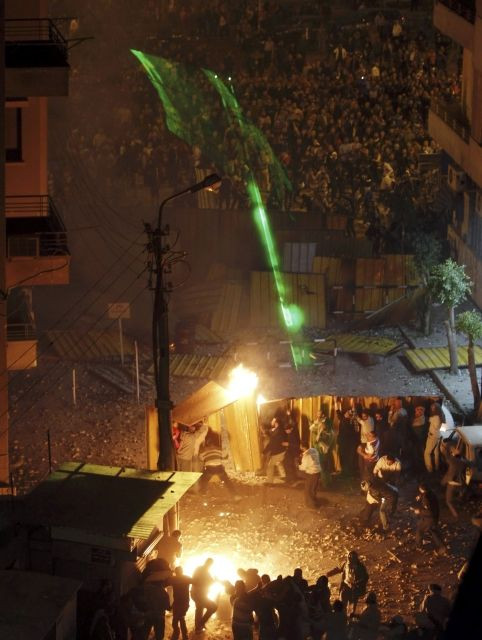Five Dead, Hundreds Injured As Constitutional Clashes in Cairo Show Deep Divide

Five people died overnight in Cairo and close to 800 were reported injured as clashes continued between pro- and anti-Islamist protesters on Wednesday and Thursday, and as Dec. 15, the appointed day of constitutional reckoning for Egypt, draws closer.
On Thursday evening, before Egyptian President Mohammed Morsi was due to address the nation, protesters camped out near the Presidential Palace in the upscale Heliopolis neighborhood were driven away by the Republican Guard, and troops set up a perimeter around the palace that included tanks and armored troop carriers, Al-Arabiya reported.
Near Morsi's hometown of Zikazak, Sharkia, police used tear gas on protesters, forcing the evacuation of a nearby hospital, Al-Masry Al-Youm reported.
The deaths mark some of the worst violence seen in Egypt since President Morsi was elected in June. The clashes exposed the deep divide between the mostly secular, liberal opposition that feels the Islamist and Salafist parties in power are not heeding them.
Although he may seem impervious, the pressure on Morsi is building, and his supporters in the Muslim Brotherhood are beginning to drop out. On Wednesday three ministers from Morsi's cabinet resigned in protest over his expanded powers. The three latest ministers, Seif Abdel Fattah, Ayman al-Sayyad and Amr al-Leithy, brings the total number of Morsi's cabinet who have resigned during this crisis to six.
On Thursday, the leader of the Muslim Brotherhood's Freedom and Justice party and an adviser to Morsi, Rafiq Habib, announced he was "retiring from all political posts, including any role in the presidential office or the party," also as a result of the violent clashes, Al-Masry Al-Youm said.
On Thursday the Al-Azhar Institution, Egypt's top Islamic body and a leader of Sunni Muslims worldwide, called on Morsi to suspend the controversial constitutional decree, and demanded an open dialogue between the opposition and the Muslim Brotherhood, Al-Arabiya reported.
In a press briefing on Wednesday, U.S. State Department Spokesman Mark Toner told reporters "the upheaval that we’re seeing in the streets of Cairo clearly indicates that dialogue is urgently needed and it must be a two-way dialogue."
"Going forward, we want to see a peaceful referendum process, one that’s monitored by impartial observers," Toner said, "It’s not for us to judge one side or the other here except to say that the Egyptian people need to be allowed to protest peacefully. … There needs to be a dialogue between the government and the opposition."
Neither the U.N. nor Secretary General Ban Ki-Moon has addressed the violence yet.
© Copyright IBTimes 2024. All rights reserved.






















